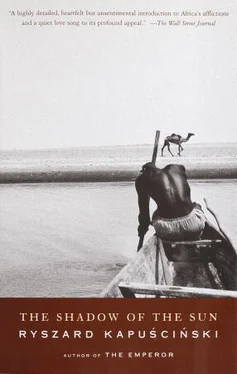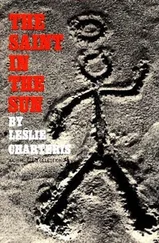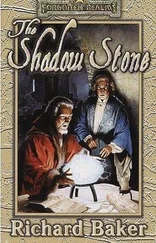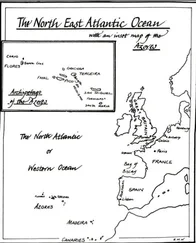In the very center of Dar es Salaam, halfway along Independence Avenue, stands a four-story, poured-concrete building encircled with balconies: the New Africa Hotel. There is a large terrace on the roof, with a long bar and several tables. All of Africa conspires here these days. Here gather the fugitives, refugees, and emigrants from various parts of the continent. One can spot sitting at one table Mondlane from Mozambique, Kaunda from Zambia, Mugabe from Rhodesia. At another — Karume from Zanzibar, Chisiza from Malawi, Nujoma from Namibia, etc. Tanganyika is the first independent country in these parts, so people from all the colonies flock here. In the evening, when it grows cooler and a refreshing breeze blows in from the sea, the terrace fills with people discussing, planning courses of action, calculating their strengths and assessing their chances. It becomes a command center, a temporary captain’s bridge. We, the correspondents, come by here frequently, to pick up something. We already know all the leaders, we know who is worth sidling up to. We know that the cheerful, open Mondlane talks willingly, and that the mysterious, closed Chisiza won’t even part his lips.
On the terrace one could always hear music coming from below. Two floors down, Henryk Subotnik, from Lodz, Poland, ran the Paradise nightclub. When World War II broke out, Subotnik found himself in the Soviet Union, and then, by way of Iran, reached Mombasa by ship. Here he fell ill with malaria, and instead of joining the Second Polish Army Corps in Italy, under the command of General Wladyslaw Anders, he stayed in Tanganyika.
His club is always jammed, crowded, and noisy. Customers are drawn here by the charms of the chocolate-colored Miriam, a beautiful stripper from the distant Seychelles. For a show-stopper she has a special way of peeling and eating a banana.
“Did you know, Mr. Henryk,” I asked Subotnik, whom I just happened to find at the bar, “that there is turmoil on Zanzibar?”
“Do I know!?” he exclaimed with surprise. “I know everything!”
“Mr. Henryk,” I asked again, “do you think that Karume is over there?”
Abeid Karume was the leader of Zanzibar’s Afro-Shirazi Party. Although this party, representing the island’s black African population, won a majority in the last elections, the government was formed by an Arab minority party supported by London — the Zanzibar Nationalist Party. The Africans, outraged by this fact, organized a revolt and abolished Arab rule. That is what had just transpired two days ago.
“Is Karume there?!” Subotnik laughed in such a way that I knew one thing for certain: he was there.
And that is all I needed.
I returned to the airport. Dodging about with Felix so that no one could make out where we were headed, we reached the control tower. Felix asked one of those on duty to connect us by telephone with the tower at the airport in Zanzibar. When a voice answered on the other end, I took the receiver and asked to speak to Karume. He wasn’t there, but was expected at any minute. I put down the receiver and we decided to wait. A quarter of an hour later, the telephone rang. I recognized Karume’s thundering, hoarse voice. For twenty years he had sailed the world as an ordinary sailor, and now, even if he was speaking into someone’s ear, he thundered as loudly as if he were trying to outshout the roar of a stormy ocean.
“Abeid,” I said, “we have a small plane here, and there are three of us: an American, a Frenchman, and myself. We wanted to fly to you. Is it possible? We won’t write any dirt, I promise you that. I swear — no lies. Could you arrange for them not to shoot us down as we land?”
A long silence ensued, and then I heard his voice again. We had permission, he said, and we would be met at the airport. We ran to the plane, and moments later were airborne, over the sea. I was sitting next to the pilot, Felix and Arnold in the back. The cabin was silent. Yes, we were happy that we had succeeded in getting through the blockade, and that we would be the first ones on the island, but at the same time we didn’t know what, actually, awaited us.
On the one hand, experience had taught me that situations of crisis appear more dire and dangerous from a distance than they do up close. Our imaginations hungrily and greedily absorb every tiny bit of sensational news, the slightest portent of peril, the faintest whiff of gunpowder, and instantly inflate these signs to monstrous, paralyzing proportions. On the other hand, however, I also knew something about those moments when calm, deep waters begin to churn and bubble into general chaos, confusion, frantic anarchy. During social explosions, it is easy to perish by accident, because someone didn’t hear something fully or didn’t notice something in time. On such days, the accidental is king; it becomes history’s true determinant and master.
Less than an hour’s flying time, and we are approaching the airport. Zanzibar: the old Arab town, like a brooch skillfully sculpted out of white stone, and further on forests of coconut palms, enormous, branching clove trees, and fields of corn and cassava, all of it framed by the brilliant sandy beach punctuated by aquamarine inlets in which bob flotillas of fishermen’s boats.
When we are already close to the ground, we see armed men positioned on both sides of the runway. A feeling of relief, because they are not taking aim at us, are not shooting. There are several dozen of them, and one notices immediately that they are poorly, carelessly dressed — half-naked, in fact. The pilot taxis the plane to the main building. Karume is not there, but there are some people who introduce themselves as his aides. They will take us to the hotel, they say, and request that the plane take off again at once.
We drive to town in two police vans. The road is empty, there are hardly any people visible. We pass some ruined houses, a destroyed, disemboweled shop. One enters the city through a magnificent, massive gate, beyond which immediately begin narrow streets, so narrow that a car can barely fit through. If someone were walking toward us, he would have to duck into a doorway and wait until we passed.
But at this time the city is silent; doors are either shut or torn out of their frames, windows tightly shuttered. A torn-off signboard on which is written “Maganlal Yejchand Shah”; a broken window in the shop Noorbhai Aladin and Sons; a similarly gaping and empty store next door, M. M. Bhagat and Sons, Agents for Favre Leuba, Geneva.
Several barefoot boys are walking by, one of them holding a gun.
“This is our problem,” says one of our guides. His name is Ali. He worked on a clove plantation. “We had only several dozen old guns, confiscated from the police. Very few automatic weapons. The principal arms are machetes, knives, clubs, sticks, axes, hammers. But you’ll see for yourselves.”
We got rooms in the deserted Arab neighborhood, in the Zanzibar Hotel. The building was constructed in such a way that it always provided coolness and shade. We sat down at the bar, to catch our breath. Every now and then some people we didn’t know would come up to see and greet us. At one point, a slight, energetic old woman came in. She began questioning us: What are we doing here? what for? where from? When she got to me and I told her where I was from, she seized me by the hand, paused, and began reciting in flawless Polish:
Pogodą rana lśni polana,
Cisza opieszcza smukłość drzew,
Dygotem liści rozszeptana,
Źdźbla trawy kłoni lekki wiew.
Naggar, Arnold, our escort, all those barefoot warriors now congregating in the hotel’s reception area, were frozen in astonishment.
Tak cicho jest i slodko wszędy,
I tak przedziwny wkoło świat,
Читать дальше












